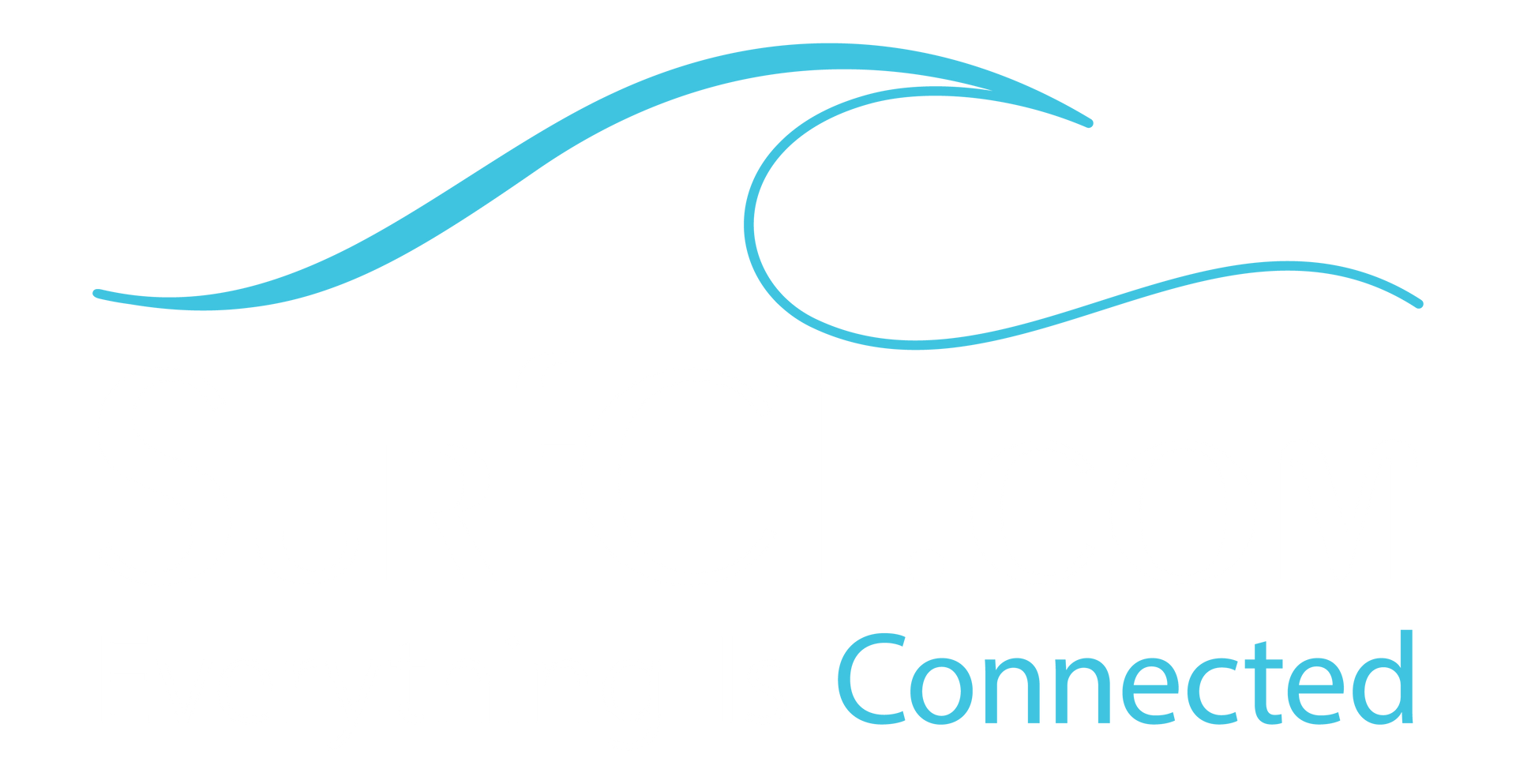The following is adapted from Superbold.
Meeting new people is stressful. When was the last time you heard someone say, “I can’t wait to go into this room full of strangers and engage in a lot of small talk?”
The reality is that most of us dread meeting new people. But, if you walk into a room of strangers with just a few “power tools” in your back pocket, I bet you might enjoy those conversations with strangers. You may even make a meaningful connection.
I didn’t always enjoy meeting new people. I was shy, and I found it both arduous and overwhelming to attend even a small networking event. But, over time I realized that if I just kept a few easy things in mind, I could not only meet people effortlessly, but also create opportunities through those quality interactions. By doing something as simple as remembering someone’s name, I was able to immediately form a connection with that person later on in the evening.
I call these tips power tools, because they are just that: powerful. However, the tools themselves are truly simple, and to use them, you just need to put a little bit of extra thought into your everyday conversations. And, if you utilize each of these tools at your next networking event, I guarantee that you will walk away feeling good about yourself.
Power Tool #1: Learning Names
We all love to hear our names. It’s music to our ears.
Naturally, if you tell yourself you’re bad at remembering people’s names, you will be. The fact is, most of the time we can remember names if we associate them with something about the person and repeat their name a few times in the first interaction. It also requires active listening, which we neglect very often when we first meet someone and hear their name for the first time.
Power Tool #2: Asking Questions
Your simplest solution to making a connection in any new conversation is to ask the person questions. Questions are magic. They are powerful. The subtext is “I’m interested in what you think” or “I’m interested in who you are.” And it leads to an exchange. You get to listen and learn, and then add to it.
To be interesting, be interested.
I can’t tell you how many situations I’ve been in where all I did was essentially ask a question, listen to the answer, and then ask another question, for the entire conversation. Later I would hear that the person thought I was really interesting, even though I had hardly said anything to the person.
Allow yourself the release of being interested in someone else, and they will respond. Active listening is crucial to do when you first meet someone, and as a general life skill it is in the top three.
Power Tool #3: Upgrading Your Default Expression
Every one of us has a default expression, which is what our face looks like most of the time. Check your face. It’s what you look like when you’re not smiling.
What is your default expression? By that I mean, when you are just sitting there, relaxed, not communicating with anyone. Is it neutral? Is it inviting, happy, warm, friendly, or is it sad, frowning, grouchy, judgmental? Do you find yourself scowling a good part of the time? Or just sitting there with a downturned mouth? If so, I want you to try to catch yourself at it and deliberately bring some lightness, some positivity, into your face.
Your face is what you project to the world. Just think about how you respond to other people’s expressions. Listen to your internal monologue, your judgments about them. They are almost always at least partially based on their facial expressions.
Smile more. A lot more. Upgrade your default face. And use other people’s unpleasant expressions to trigger you to reset yours to something happier, more appealing, starting today.
Power Tool #4: Using Key Words and Compliments
Complimenting early on in an encounter is a powerful tool. But it has to feel genuine, not excessively flattering, and not weird or creepy. Find some words that you feel comfortable with, that you can say believably, and that don’t push the boundaries of a healthy exchange.
Remember that the unexpected is memorable. Here are some that I consider unique and also less focused on appearance: observant, perceptive, intriguing, intuitive, energetic, relaxed, dynamic, serene, playful, fun-loving, worldly, wise.
Try to develop your own repertoire of words that are unique, positive,complimentary, but not bizarre or esoteric. When you find out what best rolls off your tongue, these words are reusable, so build up your working vocabulary.
Compliments are a gift you give to someone else. And everyone likes presents. Get good at being sincere in your compliments as well as unique, whenever possible. To put a smile on someone’s face, or just to know that you did something without expecting anything in return, becomes a precious gift you give yourself as well as them.
Power Tool #5: Adding to Yes
The best speaking training I ever got was in improv comedy classes. One of the ironclad rules of improv comedy is this: when you are building a scene and it’s your turn to speak or do an action, you are always adding positively to something. You never negate anything that has already been presented. That principle is called “Saying yes, and…”
It’s exactly the same with conversation. The easiest way to build an interaction is by always adding something, not reversing the direction or negating what someone has just said. That way, the conversation gains momentum instead of screeching to a halt.
I think adding to yes is a great rule to apply to your whole life. But let’s start with conversation. By starting your response with “Yes,” you trick yourself into saying something positive. I recommend saying the “Yes, and…” out loud until you find yourself not needing to, until it becomes a reflex not to negate what someone is saying.
Power Tool #6: Saying the Unexpected
When we hear something we’re expecting someone to say, we don’t store it deep in our memory. What we do remember are unusual or unexpected things. This is how you can become memorable easily.
To be memorable, get good at saying something positive and unexpected. Bold people are always memorable.
Here is one of the most unexpected things you can express: appreciation. We all are fairly terrible at expressing appreciation, and it is one of the most powerful messages you can give someone. It’s memorable in large part because people seldom expect it.
Once you realize how many situations present themselves when you can do this, you’ll start to revel in the reactions you get. Thanking someone for being courteous or considerate will be both well received and likely to start a conversation. Letting someone close to you know that you appreciate what they do for you is an extremely loving gesture. Don’t hesitate to express appreciation at every turn.
Power Tool #7: Employing the Power of Suspense
Every good story has suspense. In all good storytelling, something is always held back. It’s the same thing in conversation. Use suspense by not giving in to the urge to immediately roll out a whole story.
By combining the Power Tool of Asking Questions with the Power Tool of Suspense, you will seem more interested in people, which makes you even more interesting, with the suspense thrown in. For example, you could go on and give a full description of what you do for a living, what your job entails, who your clients are, and all that. Or you could say, “I work in an esoteric part of the communication field, but I’m more interested in what you do.”
See? You teased a bit about yourself, and then you said you were more interested in who they were than talking about yourself. Wow. You really are in communication!
These Tools Will Open Doors
If you use these tips regularly when meeting new people, they will become reflexive. It will be so natural for you to use them that you won’t even need to think about them.
Some may seem obvious and some are more subtle, but each works to create impactful, memorable interactions and open doors that previously would have been locked to you. You will start looking forward to things like networking events and random parties. And before you know it, you will be capitalizing on opportunities you never would have known existed.
For more advice on mastering social interactions, you can find Superbold on Amazon.
Fred Joyal is an author, speaker, entrepreneur, and business advisor. Along with a lucrative career in advertising and marketing, he co-founded the most successful dentist referral service in the country, 1-800-DENTIST. He has written two books on marketing, dabbled in stand-up and improv comedy, acted in bad movies and excellent TV commercials, and visited over forty-four countries around the world. He has an honorary Doctor of Arts degree from the University of Rhode Island, perhaps because of his generous donations. He once beat Sir Richard Branson in chess and was also a question on Jeopardy!. He is an avid cyclist, a below-average tennis player, and an even worse golfer.
About Fred Joyal
Fred was the co-founder of Futuredontics, the parent company of 1-800-DENTIST, which, over 30 years, generated over $1 billion in revenue. His latest book, Superbold: From Under-Confident to Charismatic in 90 Days, is an Amazon and Wall Street Journal bestseller. He is also the author of two books for the dental industry, Everything is Marketing: The Ultimate Strategy for Dental Practice Growth, published in 2010, and Becoming Remarkable: How to Create a Dental Practice Everyone Talks About, published in 2015. He has acted in, written or directed over 200 television commercials and radio spots. Learn more about Fred by visiting his webpage online.


